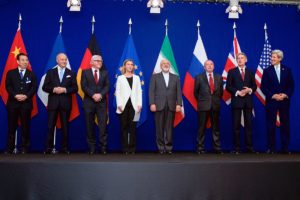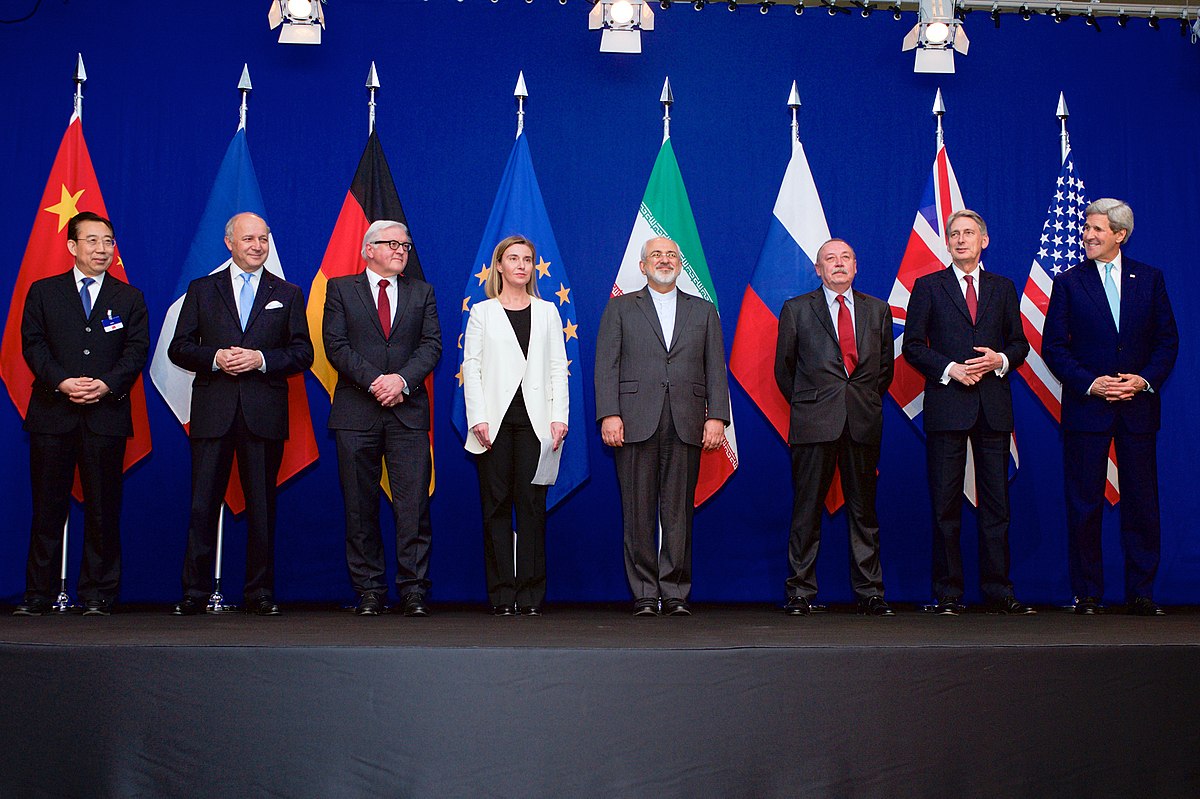 Following a decision on Tuesday by the United States to withdraw from the 2015 nuclear agreement with Iran, the United Nations chief said he was “deeply concerned” by the move, and called on all parties to preserve the deal.
Following a decision on Tuesday by the United States to withdraw from the 2015 nuclear agreement with Iran, the United Nations chief said he was “deeply concerned” by the move, and called on all parties to preserve the deal.
President Donald Trump made the announcement at the White House, and immediately afterwards signed a memorandum to begin reinstating economic sanctions on Iran at “the highest level”.
In a statement released shortly afterwards, UN Secretary-General António Guterres said: “I am deeply concerned by today’s announcement that the United States will be withdrawing from the Joint Comprehensive Plan of Action (JCPOA) and will begin reinstating US sanctions.”
“I have consistently reiterated that the JCPOA represents a major achievement in nuclear non-proliferation and diplomacy and has contributed to regional and international peace and security,” he added.
The JCPOA – reached by Iran, China, France, Germany, Russia, the United Kingdom, the US and the European Union – sets out rigorous mechanisms for monitoring restrictions placed on Iran’s nuclear program, while paving the way for the lifting of UN sanctions against the country.
“It is essential that all concerns regarding the implementation of the Plan be addressed through the mechanisms established in the JCPOA,” Guterres stressed, adding that “issues not directly related to the JCPOA” should be addressed separately.
The UN chief called on other JCPOA participants to abide fully by their respective commitments and on all other Member States to support the agreement.
The European Union (EU) on its part said it deeply regrets the announcement by US President Trump to withdraw from the JCPOA.
The JCPOA, unanimously endorsed by UN Security Council Resolution 2231, is a key element of the global nuclear non-proliferation architecture and is crucial for the security of the region, said the High Representative of the European Union for Foreign Affairs and Security Policy Federica Mogherini in a statement on behalf of the EU.
As long as Iran continues to implement its nuclear related commitments, as it has been doing so far and as has been confirmed by the International Atomic Energy Agency in 10 consecutive reports, the EU will remain committed to the continued full and effective implementation of the nuclear deal, the statement said.
The lifting of nuclear related sanctions is an essential part of the agreement. The EU has repeatedly stressed that the sanctions lifting has a positive impact on trade and economic relations with Iran. The EU stresses its commitment to ensuring that this can continue to be delivered, Federica Mogherini added.
The JCPOA is the culmination of 12 years of diplomacy which has been working and delivering on its main goal. The EU is determined to work with the international community to preserve it, she said.
Earlier this month, the International Atomic Energy Agency (IAEA) released a statement via its Spokesperson, reiterating the fact that according to its December 2015 Board of Governors report, “the Agency had no credible indications of activities in Iran relevant to the development of a nuclear explosive device after 2009.”
At the Board of Governors meeting in March this year, IAEA chief Yukiya Amano said Iran was still abiding by the deal and IAEA inspectors had been given access to all sites and locations, upon request. “If the JCPOA were to fail, it would be a great loss for nuclear verification and for multilateralism,” he said.
